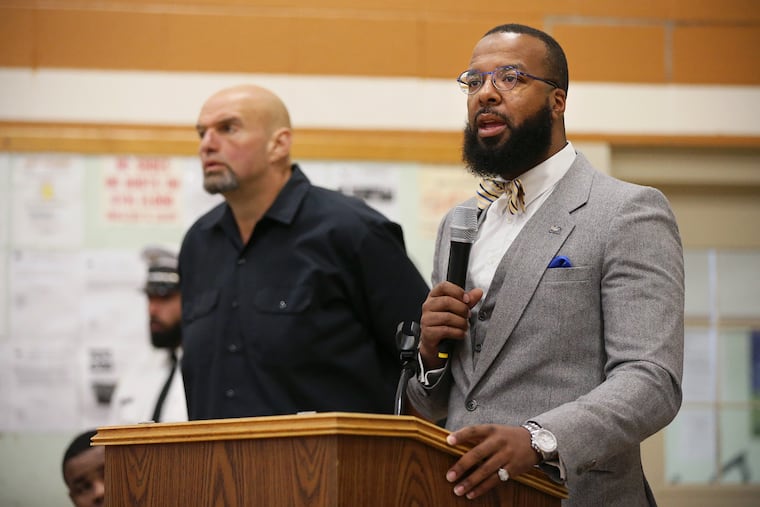Increased funding for Board of Pardons is key amid calls for police reform | Opinion
Arbitrary, mandatory minimum sentences send some people to prison for the rest of their lives, while others who committed more serious crimes under different statutes are paroled within five or 10 years.

All across Pennsylvania, we need to build trust between police and the communities they serve, with systemic change that can be created through thoughtful legislation. Community partnerships need to be formed between law enforcement organizations, residents, schools, child support services, prosecutors, religious leaders, businesses, and other members of our society.
These needs have come into sharp focus this year, as protests following the death of George Floyd at the hands of Minneapolis police have occurred in big cities and small towns all over the country. Amid calls for abolishing the police and other criminal justice reforms, it is important that we not lose sight of another area where injustice exists in the system.
As chair of the Board of Pardons, I see those who fall through the cracks in our state, good people whose lives are ruined by bad choices. For some, it is a bar fight that remains on their record for three decades. For others, it’s life imprisonment (with no chance of parole) for a second-degree conviction. That means they did not take a life, but the commonwealth is taking theirs through imprisonment.
Arbitrary, mandatory minimum sentences send some people to prison for the rest of their lives, while others who committed more serious crimes under different statutes are paroled within five or 10 years.
We have long known that our justice system falls woefully short of equity, as demonstrated by Philadelphia District Attorney Larry Krasner’s Conviction Integrity Unit, which has uncovered misconduct that should shock the consciences of all those in pursuit of justice.
We also know that much of this misconduct is directed toward marginalized communities: Black and brown people who do not have the resources to fight the system. So they wither (and in many cases die) in prison after serving years, and sometimes decades, more time than was reasonable for the crime they committed.
Pennsylvania’s mass incarceration is not just the result of police action. It lies at the feet of prosecutors more concerned with winning rates than justice. It lies at the feet of politicians who, as the Rev. Dr. Martin Luther King Jr. said, are more devoted to order than to justice. We as a commonwealth must start caring more and doing more to address mass incarceration.
One way Pennsylvania can achieve this is through increased funding to the Office of the Board of Pardons, so we can process more pardon and commutation applications and free deserving Pennsylvanians of this burden on their lives.
Our state’s relationship with mass incarceration begins with a police encounter and, for many, ends in unduly long incarceration sentences.
About 5,500 people are serving life without parole in Pennsylvania’s state correctional facilities, including approximately 1,100 people with second-degree murder convictions. That means 1,100 people who did not take a life are having their lives taken at the hands of the commonwealth.
Two-thirds, 66%, of all incarcerated life-without-parole inmates are Black, though Black people only comprise approximately 12% of Pennsylvania’s population.
When broken down by county, Philadelphia makes up 50% of all life-without-parole inmates. When broken down by race, 84% of Philadelphia’s portion of life-without-parole inmates are Black (although Philadelphia’s demographics show that the population overall is 42% Black). These numbers are outrageously disproportionate, and they show how broken Pennsylvania’s criminal justice system really is.
Change can occur if we demand action from our state legislature to reform police and prosecutors, repeal mandatory sentencing, and reduce over-policing (which includes finally legalizing adult-use marijuana).
We must invest in making communities safer through education and programming. We should be sending more children to college instead of prison.
We can only truly begin to make meaningful changes to the justice system in Pennsylvania if we address it as a whole, all the way from an encounter with the police to our parole and pardoning processes.
John Fetterman is the lieutenant governor of Pennsylvania.